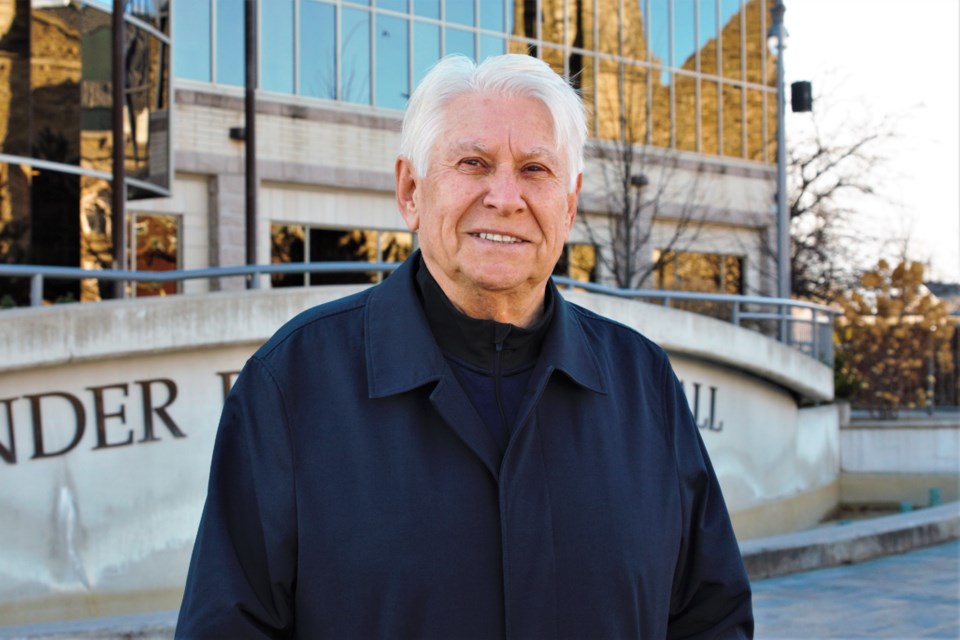THUNDER BAY – It’s been a tragic year, to say the least, in Thunder Bay.
Unfortunately, when telling the story of the city in 2022, the deadly record it set cannot be ignored, though in any other year, the situation at the Thunder Bay Police Service would have easily been our No. 1 story of the year.
Here are our top 10 story lines of 2022, as chosen by Dougall Media News Director Leith Dunick.
1. The city recorded 15 confirmed murders over the past 12 months, the highest number since the city was formed more than half-a-century ago. The ongoing scourge of drugs and gangs are at the heart of the problem, which will land Thunder Bay once again the title of Murder Capital of Canada. The previous high was 11 confirmed murders, in 2014.
2. The mess atop the Thunder Bay Police Service and the Thunder Bay Police Service Board led to human rights violation charges being filed against senior leadership of both entities. As the year progressed Chief Syvie Hauth first announced her pending retirement, only to be suspended from her post. Deputy Chief Ryan Hughes was also suspended and once again an outside mediator was appointed to oversee the police services board, which led to a mass resignation from the board.
3. A familiar face returned to the mayor’s chair after Bill Mauro decided he’d had enough of politics and took a job in the private sector. Ken Boshcoff fought off four other challengers, including Coun. Peng You, to become mayor for the first time in 19 years. Several long-term councillors, including Rebecca Johnson, Aldo Ruberto and Brian McKinnon, also called it a day, leading to five new faces around the council table.
4. For the first time in decades, a Conservative was elected provincially in Thunder Bay-Atikokan. Kevin Holland, the former Conmee Townwhip mayor, in June defeated NDP incumbent Judith Monteith-Farrell and Liberal hopeful Rob Barrett to win the seat. In Thunder Bay-Superior North, a 27-year political dynasty ended when Michael Gravelle’s health forced him to not run again. The seat went to the NDP’s Lise Vaugeois.
5. The indoor turf facility dominated city council for much of the year, and ultimately a proposed $44.8-million project planned for Chapples Park was shelved when senior levels of government rejected an application for $22 million in funding. The project was resurrected late in the year when Soccer Northwest brought forward a $25-million, Hangar-like proposal for lands near the Canada Games Project, which the city will study.
6. COVID-19 continued to dominate the headlines early in the year, as restrictions put in place by the province forced the closures of many city-run facilities, movie theatres and put an end again to indoor dining. Eventually the province lifted all restrictions, allowing for a return to a more normal summer, which brought back the Canadian Lakehead Exhibition and allowed for more traditional celebrations like Canada Day and RibFest to operate without restrictions.
7. Local and regional politicians and First Nations leaders travelled to Edmonton to listen first-hand to Pope Francis apologize for the Roman Catholic Church’s role in the residential school system and the decades of abuse suffered by students force to attend the schools.
8. In May, the James Whalen Tug sank to the bottom of the Kaministiquia River, leading to a $750,000 salvage job to lift it to dry land. It was the second time in a year the vessel had taken on water.
9. It was the winter that just never seemed to end. In March and April, weekly Wednesday snowstorms seemed to become the norm, frustrating golfers and gardeners eager to put winter behind them, but a boon for skiers and snowmobilers happy to extend the snow a little longer to continue their favourite activities.
10. Education workers with the Lakehead Public School Board walked off the job in protest of Bill-28, legislation imposed by the government forcing a settlement on CUPE members across the province. A deal was eventually worked out, but not before the board was forced to announce schools were set to return to virtual learning if custodial and cafeteria workers walked off the job again.



